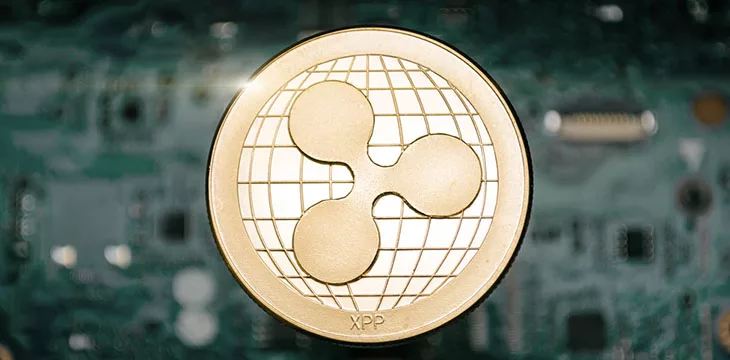|
Getting your Trinity Audio player ready...
|
The U.S. Securities and Exchange Commission (SEC) has again argued for an appeal over a partial ruling in its case against Ripple, accusing the digital asset company of trying to delay a resolution “so that they may continue freely selling XRP into public markets without the disclosures that come with registration.”
This latest SEC submission to the U.S. District Court in the Southern District of New York comes as a rebuttal to a September 1 filing by Ripple, which asserted that an appeal delayed the resolution of the overall case.
The regulator claimed the opposite, stating, “The SEC, like the Court, has an institutional interest in the most efficient ultimate resolution of this litigation.”
“Defendants’ interest, by contrast, is to delay an ultimate resolution so that they may continue freely selling XRP into public markets without the disclosures that come with registration, to the tune of over $3 billion net ODL sales since 2020 alone.”
The SEC is suing Ripple Labs, along with CEO Brad Garlinghouse and Executive Chairman Christian Larsen, for engaging in illegal securities offerings from 2013 up to the present, based on the sale of digital assets XRP.
In July, Judge Analisa Torres ruled on two summary judgment motions from both parties, deciding that institutional sales of XRP amounted to illegal securities based on the Howey test, but that “programmatic sales” of XRP through exchanges and algorithms did not, due to the lack of “a reasonable expectation of profits to be derived from the entrepreneurial or managerial efforts of others.”
Last month, the SEC officially asked Judge Torres for leave to appeal the latter part of this ruling, and on Friday, the regulator filed its final arguments in support of its motion.
“While interlocutory appeal should be the exception, not the rule, this is the unusual case where the Defendants themselves say that the issues have industry-wide significance and are of special consequence, and thus is precisely the type of case as to which the Second Circuit has invited interlocutory appeal,” the SEC said.
The story so far
The case began on December 22, 2020, with the SEC filing a complaint against Ripple Labs and its founders, stating that the defendants sold over 14.6 billion units of XRP without registering their offers and sales with the SEC.
In July this year, Judge Torres ruled on the summary judgment orders—applications brought during proceedings if a party believes it has an overwhelmingly strong case—finding that institutional sales of XRP were illegal securities offerings, but programmatic sales were not.
On August 4, in a letter to Judge Torres, the SEC indicated that it intended to appeal part of this ruling, maintaining that programmatic sales do, in fact, amount to securities offerings.
There are still parts of the trial ongoing, so the appeal would be ‘interlocutory,’ meaning it comes before the final judgment and resolution of the case. The ongoing matter relates to a trial by jury for Garlinghouse and Larsen, ordered by Judge Torres in July, over whether they are liable for aiding and abetting illegal securities sales to institutional investors who bought XRP.
On August 9, the SEC wrote to the court to argue that they should be allowed to make arguments on whether or not they can appeal the programmatic sale ruling. In response, two letters filed with a federal judge on August 16 by Ripple Labs and the other defendants opposed the regulator’s impeding appeal motion.
However, Judge Torres sided with the SEC and, on August 17, granted the regulator’s request, as well as setting several deadlines for the court to hear the argument on whether or not an appeal should be permitted.
The SEC filed its formal motion for leave to appeal on August 18. Ripple had until September 1 to respond, which they duly did, and the SEC’s final reply came on September 8.
Judge Torres will now consider all arguments. Should she grant the SEC’s motion, the regulator will need to present its case before the Second Circuit Court of Appeals.
Follow CoinGeek’s Crypto Crime Cartel series, which delves into the stream of group—from BitMEX to Binance, Bitcoin.com, Blockstream, ShapeShift, Coinbase, Ripple,
Ethereum, FTX and Tether—who have co-opted the digital asset revolution and turned the industry into a minefield for naïve (and even experienced) players in the market.

 08-07-2025
08-07-2025 





